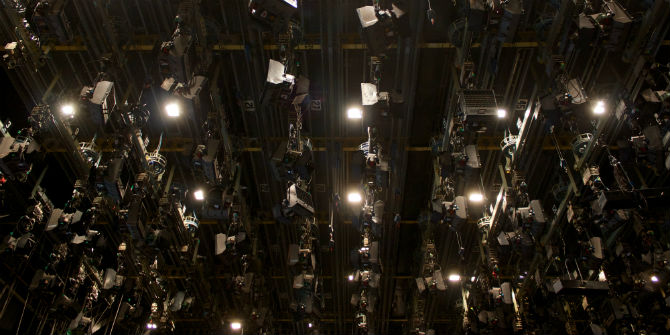 Granville Williams, the editor of a new book, “Big Media and Internet Titans,” argues that current levels of media concentration are unacceptable and media ownership needs to be put back on the political agenda.
Granville Williams, the editor of a new book, “Big Media and Internet Titans,” argues that current levels of media concentration are unacceptable and media ownership needs to be put back on the political agenda.
In June 2011, just weeks before the UK government was poised to give News Corporation permission to acquire the 61 per cent of BSkyB that it didn’t already own, James Murdoch was speaking at the Cannes International Festival of Creativity Debate. He said that News Corp wasn’t by any measure big enough to really compete on the world stage: “There are much, much bigger beasts than a News Corp or a Time Warner.”
Then James Murdoch was the heir apparent in News Corp, the third biggest media conglomerate in global terms. As Peter Jukes points out, “To seal his role as heir apparent, James devised a strategic plan code-named ‘Rubicon’ to take over the remaining 61 per cent of BSkyB and establish a broadcast digital monopoly to match the one his father had created in publishing thirty years before.” [i]
Of course it all went horribly wrong. In the wake of the phone-hacking scandal the BSkyB bid was abandoned and Rupert Murdoch announced that News Corporation’s assets would be split into two publicly traded companies, one oriented towards film, TV, cable and satellite, and the other towards publishing.
In the Cannes event where James Murdoch made the point that the company was small and needed to grow to compete with the top tier of global media groups, the interviewer, Sir Martin Sorrell, CEO of the advertising giant WPP, asked Murdoch whether the convergence of the assorted ‘Sky’ brands over Europe might be the first stage of getting bigger. “The national nature of those businesses doesn’t work well with competing on a global basis with monolithic brands like Google,” Murdoch responded.
Exposing and repairing a democratic fault line
Fast forward nearly three years and in May 2014 BSkyB announced an £8.3 billion plan to take full control of its sister companies Sky Italia and Sky Deutschland. Murdoch has a 57 per cent stake in Sky Deutschland and 100 per cent of Sky Italia. The Financial Times Lex column commented that the action has “the feel of a Murdoch master plan. He may want to unify the European TV companies, then bid for the rest of BSkyB itself.”[ii]
The simple fact that there is nothing under EU and UK media ownership rules to prevent such a master plan coming to fruition exposes a democratic fault line which threatens media pluralism. At an EU level the European Initiative for Media Pluralism, now in the final stage of collecting signatures, is an attempt to repair that fault.
The BSkyB case makes the new book I have edited, Big Media & Internet Titans, absolutely timely. It focuses on media ownership policy issues and highlights the democratic challenges posed by excessive media power, both in the hands of ‘old’ or legacy media, but also through the emergence of Google, Apple, Facebook and Amazon – what John Naughton terms ‘the giants of cyberspace’. Both the old and new concentrations of media power have implications for media policy, politics and journalism.
It is incredible that after the euphoria around the Levenson Inquiry and Report that the key policy issue of media ownership appears to be receding to the sidelines in UK political debate.
There is a reason for this, as Harold Evans pointed out at the time: “Press ownership is an unresolved issue in the Leveson report. I’m highly critical of the fact that it seems to accept the present level of media concentration, and the present level of media concentration is one of the reasons the phone-hacking scandal erupted. Why? Because the politicians were scared of News International and News International was scared of nobody.”
In the run-up to the 2015 general election advisers for all the political parties will be urging caution, arguing against adopting any media policies which might antagonize the media owners.
It is time to put media ownership back on the political agenda. It’s going to be a big challenge though.
[i]Peter Jukes, The Fall of the House of Murdoch, Unbound, 2012
[ii]Financial Times 12 May 2014
The book mentioned by the author, “Big Media & Internet Titans”, is available from the Campaign for Press and Broadcasting Freedom. This article gives the views of the author and does not represent the position of the LSE Media Policy Project blog, nor of the London School of Economics.



